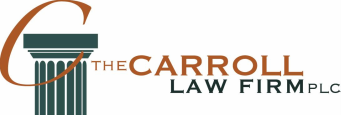More than 65% of Americans will need long-term care at some point in their lives. Over 40% of this long-term care will be in a nursing home. On average, someone aged 65 today will need some long-term care services for three years and 20% of people aged 65 will need care for more than five years.
According to MetLife Market Institute’s October 2009 study, the cost per month of assisted living is approximately $3,469.00, while the cost of nursing home care is approximately $6,789.00 and the cost of 24-Hour in-home care is $14,136.00. You can either pay the fee with your own assets, private long-term care insurance, or Medicaid.
If you want to protect your assets and pass them on to your children, and you don’t want, have been turned down by, or can’t afford long-term care insurance, the best option is the Irrevocable Income-Only Medicaid Asset Protection Trust (IIOMAPT). Making your assets joint with your adult children offers no protection since Medicaid considers all jointly held assets available for the care of the parent. Additionally, outright transfers to children leave the assets exposed to the children’s debts and liabilities, divorces, spending habits, etc. The object is to protect the assets and to qualify for Medicaid benefits as early as possible while insulating the transferred assets from other possible sources of loss.
Who Should Consider an Irrevocable Trust?
There is no black and white answer to this question. However, generally, an irrevocable trust should be established by older adults who wish to protect their assets. This older adult must be ready to relinquish direct control over his or her assets. Most of the control over the assets is turned over to a loved and trusted family member, who acts as trustee of the trust. The trustee is in charge of guarding the assets in the irrevocable trust, in case a future need arises. Meanwhile, the older adult continues to maintain direct control over his or her income, such as social security and pensions, as well as assets chosen to remain outside the irrevocable trust. Further, the older adult can retain some measure of control over the trustee by reserving the right to change the trustee in the event of dissatisfaction for any reason. Additionally, the older adult creating the trust can retain the power to change the beneficiaries of the trust.
Because the transfer of assets to an irrevocable trust is subject to a waiting period for Medicaid eligibility of 60 months, it should be anticipated that the older adult will not need nursing home care for at least 2 or 3 years. If the older adult needs to apply to Medicaid within the 60 months after the transfer of the assets into the IIOMAPT, Medicaid could enforce a transfer penalty. Nevertheless, it always pays to get started, since you get credit for the time you accumulate, even if you don’t make the five years.
Which Assets Are Generally Protected in This Manner?
Clients often transfer the family home and assets the client is only taking the income from is reinvesting. The client’s lifestyle is not generally affected since they continue to receive their pension and Social Security checks directly, they keep the exclusive right to use and occupy the home and they preserve all the tax exemptions on the home. The trustee will have broad investment powers and authority over the assets.
There can be absolutely no access to the principal assets by the older adult creating the trust or the older adult’s spouse. If either spouse has access to the principal assets, Medicaid would deem the assets in the trust “countable” for eligibility purposes.
Advantages of an Irrevocable Trust:
There are several advantages to planning ahead with the IIOMAPT. First, you are achieving a future that has certainty. You have a definite time line, beyond which you have a definite answer, meaning Medicaid eligibility. With assets protected in the irrevocable trust, future Medicaid eligibility may be as simple as merely filing an application. Furthermore, despite any law changes that occur making asset protection planning more strict, these will not affect you. For instance, if a homestead, which is ordinarily exempt in almost all circumstances, becomes a countable asset after a short confinement to a care facility, having the homestead as a part of the irrevocable trust protects that homestead – forever.
Second, the IIOMAPT is flexible. You may sell the home which was transferred to the trust. The money is paid to the trust, and the trust may buy a condominium, for example, in the name of the trust so it is still protected. The trust may buy and sell and trade stocks and other assets. IRA’s and other qualified plans stay out of the trust since the principal of all such retirement plans are exempt from Medicaid. These types of assets avoid probate as they go directly to the designated beneficiaries at death.
IIOMAPT’s have the additional benefit of passing assets to beneficiaries of the older adult without the expense and delay of a required probate.
For questions on Irrevocable Income-Only Medicaid Asset Protection Trusts, contact The Carroll Law Firm at (623)551-9366 and set up a free consultation.






